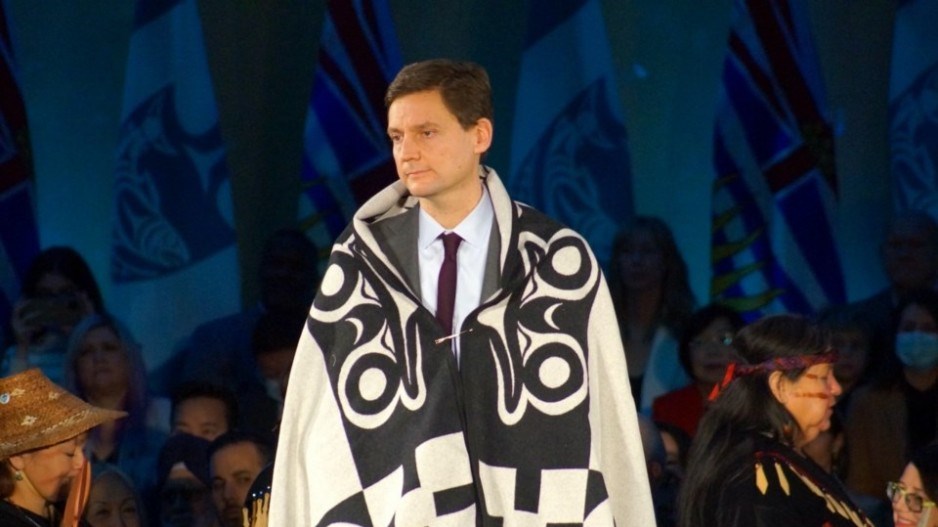Premier David Eby continues to insist he has no plans for a snap election. But there is a compelling and growing political case that could change his mind.
At the centre of it all is B.C.’s financial situation, which Finance Minister Selina Robinson outlined in the second quarterly financial update last week.
It sets out a very good argument for an early trip to the polls – an almost $6 billion surplus that’s materialized out of the blue this year, followed shortly thereafter by a forecasted economic downturn.
If Eby gathers all the unallocated funding in the budget, he has almost $10 billion in free cash to blow out the barn door on anything he wants between now and March 31, 2023.
That sets the scene for some extraordinary vote buying: Numerous large rebates back to British Columbians struggling with inflation and affordability, desperately needed cash to make a meaningful difference in the family doctor and health-care crisis, major investments in addictions, mental health and social services to clear up visible homelessness encampments, and on and on.
Eby has one of the biggest blank cheques in front of him of any premier in at least two decades.
But it has to be spent in the next four months, or by law it will automatically go to debt repayment – a situation that caused the NDP to get lambasted by critics last fiscal year when $1.3 billion went unspent at a time of various crises.
A four-month spending spree is the perfect catapult into a mid-2023 snap election.
The Eby government would by then be riding high in the polls, having thrown money at every imaginable problem.
The new premier would also have a much larger public profile, stemming from the blitz of cheque ceremonies and ribbon-cuttings across key swing ridings.
And by mid-2023 Eby would have fully executed his 100-day plan, which he insists will show visible progress on major issues of concern facing British Columbians. It could, essentially, become the NDP’s re-election platform.
By striking early, the NDP could also jam up the BC Liberals, who are in the middle of rebranding to the name B.C. United, and are currently allocating time and resources to that project rather than election readiness.
If Eby waits until the scheduled Oct. 19, 2024 election, he’ll likely be heading out on the campaign trail in a much different situation.
This year’s cash windfall is a one-time thing, owing to income tax adjustments by Ottawa, explained Robinson.
Private-sector forecasters have slashed B.C.’s gross domestic product (GDP) expectations for 2023 from 1.6 per cent to 0.5 per cent.
Labour agreements with the public sector increase sharply in 2023 and 2024.
Key provincial revenue sources are expected to cool, such as the property transfer tax, which has been a multibillion-dollar windfall in recent years but is now declining with the housing market.
Navigating a potential recession by late 2023 does not put the Eby government in as flexible a political situation for its 2024 election budget.
Despite the compelling case, Eby has said repeatedly he does not plan to call an early election and will stick with the scheduled 2024 date. But to be fair, that’s what all premiers say – right up until the moment they change their minds.
B.C. does have a fixed election law. There is no legal penalty for breaking it, as John Horgan demonstrated in 2020 when he ripped up a written agreement with the BC Greens promising not to go to the polls early.
It’s debatable whether Eby would even need to come up with a creative justification.
As a new premier, he could claim the need for a new mandate. Or he could cite the economic headwinds and need to chart a voter-approved recession plan. Or, he could brazenly not give a reason at all and weather what would be a week of negative news coverage before everyone moved on to cover the actual campaign.
Regardless, the BC NDP and its new premier won’t find a sweeter political scenario than the one stretching out before them over the next few months. It will be interesting to see whether they take it.
Rob Shaw has spent more than 14 years covering B.C. politics, now reporting for CHEK ߣ������ and writing for Glacier Media. He is the co-author of the national bestselling book A Matter of Confidence, and a regular guest on CBC Radio.




